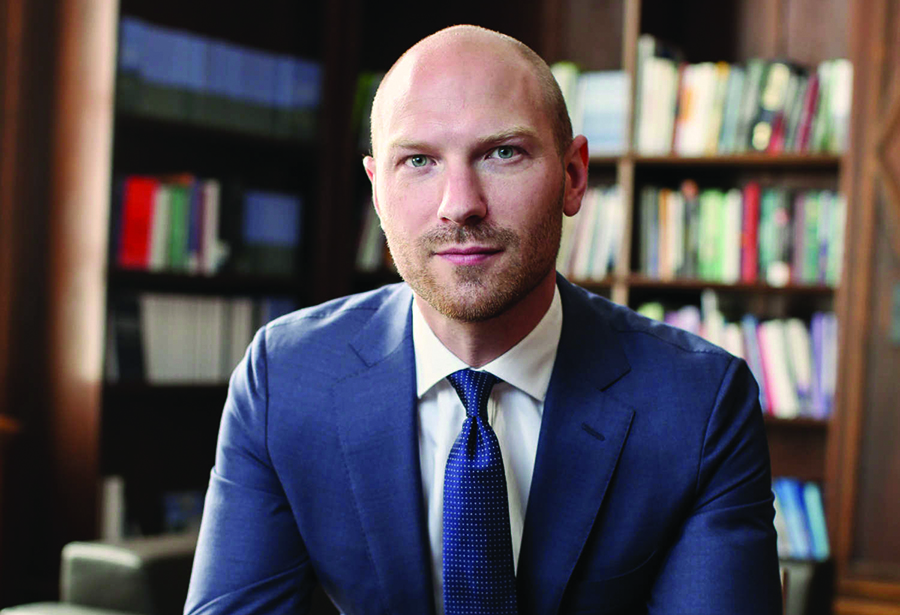Around the world, Christians are facing a level of hostility not seen in many decades. And although the Bible teaches that “all who desire to live a godly life in Christ Jesus will be persecuted” (2 Timothy 3:12), Christians in western nations are still getting used to a new reality in which Biblical beliefs are suppressed, believers lose their jobs for expressing Biblical truth, and some may even land in prison for their faith.
Consider a few cases from various countries:
- Even after being acquitted of hate crimes for expressing Biblical teaching about sexuality, Finnish Member of Parliament Päivi Räsänen and Lutheran Bishop Juhana Pohjola find their court cases dragging into a fourth year, as the Finnish prosecutor has appealed their acquittals.
- A Mexican congressman was convicted as a “political violator against women” for calling attention to the fact that congressional seats reserved for women were taken by men who identify as transgender.
- In Sweden, midwife Ellinor Grimmark was denied work at three different hospitals because of her objection to abortion.
- Australia is considering a new law that could bring about “the end of authentic Christian schooling in Australia,” according to the Australian Christian Lobby. Under the proposed law, only a few staff positions, such as religious education teachers, could be required to adhere to the school’s beliefs. For all other roles, schools would be prohibited from giving preference to employing teachers who agree with the beliefs of the school.
Paul Coleman, executive director of Alliance Defending Freedom International, is intimately familiar with these kinds of cases. The Christian legal ministry has engaged with cases in 104 countries, racking up 1,500 wins since 2010. The cases just keep coming.
“There’s a quote by Charles Chaput that comes to mind,” Coleman told Decision: “‘Evil preaches tolerance until it is dominant. Then it tries to silence good.’ In my opinion, this quote neatly summarizes the situation in the West right now.
“There is a clear rise in global persecution of Christians,” Coleman said. In Africa, the Middle East and Asia, cases often involve blasphemy laws or laws against religious conversion. Such laws also tend to fuel mob violence against Christians or other religious minorities.

In a number of Western nations, censorship has become a major issue.
“A lot of this censorship is now coming with criminal penalties,” Coleman said. “It’s not just a case of being canceled, having a social media account frozen, or going in ‘Twitter jail.’ We’re facing real criminal prosecutions and criminal cases for expressing Christian viewpoints.”
Ironically, western nations that fought in the 20th century against the propaganda and thought control of Nazism and communism now seem willing to engage in those same practices.
“A lot of the hate speech laws that we have in Europe today are cut-and-paste from Soviet times and communist countries,” Coleman says. “Even though these communist regimes have all collapsed, the legacy of censorship that they introduced has continued on to this day.”
Coleman explained that after World War II, as nations were negotiating international human rights treaties to restrict the power of the state and protect the rights of individuals, western nations advocated for strong free speech protections. The Soviet Union, on the other hand, successfully pushed for bans on “incitement to hatred.” That concept now finds itself in all of the different criminal codes of Europe, Coleman said.
It’s clear that no one should incite others to hatred. The problem is it is impossible to legally define what that means. So now European countries have laws that can be used to target any non-mainstream views.
“Hate is whatever those in power say it is,” Coleman said. “Traditional Christian beliefs about marriage, human sexuality and the sanctity of life have all been censored on the basis that they are hateful.”
Beyond specific laws on the books, the world’s basic moral values conflict with God’s Word, and that is something that has never changed.
Coleman sees a model in Acts 4 for how Christians can respond to hostility and opposition. In that chapter, the apostles Peter and John were arrested and ordered not to preach in the Name of Jesus Christ. But the church prayed, and the believers were filled with the Holy Spirit and “continued to speak the word of God with boldness” (Acts 4:31).
“They didn’t back down,” Coleman said. “They didn’t hide. They responded to the challenge with boldness and confidence, in prayer and reliance on the Holy Spirit. I think there’s a lot there that we can mirror and model today.” ©2023 BGEA
Scripture quotations are taken from The Holy Bible, English Standard Version.
Top photo: Finnish Member of Parliament Päivi Räsänen
Photo: Courtesy of Alliance Defending Freedom International
